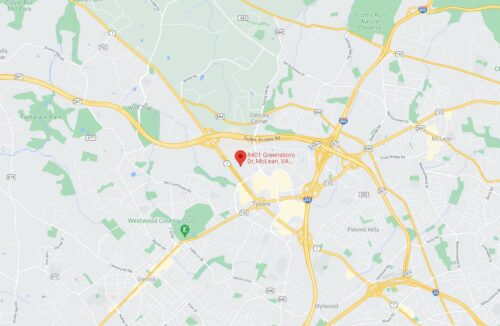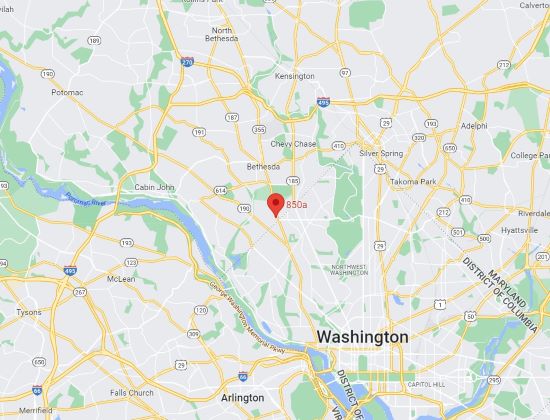Understanding Cataract Surgery Cost:
A 2024 Guide to Prices With and Without Insurance
Understanding Cataract Surgery Cost:
A 2024 Guide to Prices With and Without Insurance
Cataract surgery can be a life-changing procedure, restoring clarity and brightness to the world around you, but understanding the cataract surgery cost can seem overwhelming. Fear not, for this comprehensive guide from Holzman Solomon Vision Partners is here to help you navigate the complexities of cataract surgery costs in 2024, from insurance coverage to different lens options and potential out-of-pocket expenses.
Key Takeaways
-
Navigating Cataract Surgery Cost in 2024: Proactive communication with surgeons and insurance providers can help to reduce potential out-of-pocket expenses.
-
Cataract Surgeon & Surgical Center Fees, Intraocular Lens Options, Additional Procedure Costs & Medicare Coverage should be considered when evaluating costs for cataract surgery.
-
Supplementing Insurance with Savings Accounts such as FSAs and HSAs can offer financial buffers to manage out of pocket costs.
Navigating Cataract Surgery Cost in 2024
Cataract surgery cost can be influenced by several factors, including the type of intraocular lens (IOL) used, the geographical location where the surgery takes place, and in-network or out-of-network expenses. The role of health insurance coverage is significant in determining your out-of-pocket cost for cataract surgery. Both Medicare and private insurance plans can significantly reduce out-of-pocket expenses, often by 80% or more.
On average in the United States, out-of-pocket costs for cataract surgery range from $3,500 to $7,000 per eye. At Holzman Solomon Vision Partners, we offer a comprehensive cataract surgery package priced at $11,000 for both eyes, performed exclusively at our modern surgical facility. This all-inclusive fee covers every aspect of the procedure, including the initial consultation, thorough pre-operative assessments, premium intraocular lenses, skilled surgeon, prescribed medications before and after surgery, facility usage fees, and any follow-up touch-ups that may be required. Moreover, our patients enjoy the added assurance of a lifetime guarantee, ensuring ongoing support and top-notch care throughout their cataract surgery experience. It’s important to note that we do not participate in Medicare or accept insurance plans.
Being proactive and engaging in open conversations with your surgeon and insurance provider can help you avoid unexpected costs. Make sure to investigate other patients’ experiences and be aware of any additional costs that may arise from follow-up visits.
The Breakdown of Cataract Surgery Expenses
Cataract surgery expenses are comprised of various components, such as:
-
The technologies employed
-
The severity of the patient’s cataract
-
The type of cataract surgery
-
The IOL implanted
-
The patient’s health insurance coverage
The average expense for cataract surgery is estimated to be $3,500 per eye, with a maximum of $7,000 per eye. However, the cost may vary depending on whether the procedure is performed at a hospital or surgery center.
Advanced cataract surgeries, like laser cataract surgery or those using toric IOLs, may be expensive. The out-of-pocket cost for premium cataract eye surgery procedures, such as these, range from $5,000 to $6,000 per eye.
Cataract Surgeon and Surgical Center Fees
At Holzman Solomon Vision Partners, we recognize the significance of transparency when it comes to surgical fees for cataract procedures. Our practice distinguishes itself by offering an in-office surgical center that consistently delivers exceptional outcomes for our patients. The fees at our practice typically range between $5,000 and $6,000 per eye. This cost encompasses not only the expertise of our skilled cataract surgeons but also the advantages of our dedicated in-office surgical facility, ensuring a seamless and high-quality experience for our patients.
We believe in providing comprehensive information to our patients, and we encourage individuals seeking cataract surgery to consider both the quality of care and the overall value when evaluating surgical options. For more detailed pricing information and to discuss your specific needs, we welcome you to reach out to our team at Holzman Solomon Vision Partners or schedule a consultation with our experienced healthcare professionals.
Intraocular Lens Options
The choice of an intraocular lens (IOL) can significantly impact the cost of cataract surgery. Some available options include:
-
Fixed-focus monofocal lenses
-
Accommodating monofocal lenses
-
Toric lenses
-
Multifocal lenses
Insurance coverage for premium IOLs is contingent upon your personal insurance, private insurance coverage, or if it’s covered by Medicare. Although a costlier lens or technology may result in higher upfront expenses, it can enable patients to save money by not having to purchase eyeglasses or contact lenses post-surgery.
Additional Procedure Costs
Beyond the cataract surgeon and surgical center fees, as well as the choice of IOL, there may be additional costs associated with basic cataract surgery. These can include lens extraction using phacoemulsification or extracapsular surgery, and the replacement of the cloudy lens with an IOL. In some cases, patients may opt for laser cataract surgery, which could also impact the overall cost.
Laser-assisted cataract surgery, for instance, can elevate the cost per eye without insurance. Furthermore, complications during cataract surgery can lead to additional expenses, such as the need for surgical adjuncts or advanced types of cataract surgery. You should consult Dr. Solomon and his staff to understand the potential costs associated with complications during cataract surgery.
Medicare Coverage for Cataract Surgery
Medicare, a U.S. federal health insurance program for individuals aged 65 and over or those living with a disability, provides coverage for standard cataract surgery using a monofocal lens, subject to a copayment and deductible. Medicare typically covers 80% of the accepted cost of services under Part B, with the remaining 20% being the responsibility of the individual.
However, patients may still be liable for the following expenses if they opt for a premium IOL, toric lens, or multifocal lens implantation:
-
Physician/surgeon fees – anastesia fees, medical cleanrance vees,
-
Copayments
-
Deductibles
-
Out-of-pocket expenses
Medicare and Premium IOLs
Medicare only covers a monofocal intraocular lens for cataract surgery in 2024. If you choose a premium IOL, such as a toric lens or a refractive lens, you may incur additional out-of-pocket expenses.
Before choosing a premium IOL, weigh the benefits against potential out-of-pocket costs. Consult your eye surgeon and review your Medicare coverage to make a well-informed decision about the best IOL for your needs.
Medicare and Holzman Solomon Vision Partners
Holzman Solomon Vision Partners takes pride in being a premium surgical group committed to providing exceptional eye care services and unparalleled surgical outcomes. Our practice is dedicated to delivering the highest standards of excellence in ophthalmic surgery, utilizing cutting-edge technology and the expertise of our renowned surgeons.
It’s important to note that Holzman Solomon Vision Partners, as a premium surgical group, does not participate in Medicare. While we acknowledge the importance of various insurance plans, our decision not to accept Medicare is rooted in our commitment to maintaining the personalized, state-of-the-art care that sets us apart. We remain devoted to serving our patients with the utmost dedication, ensuring a tailored and premium experience that aligns with our unwavering standards of excellence. For detailed information about our services and payment options, we encourage prospective patients to contact our office directly.

Private Insurance and Cataract Surgery
Most private health insurance providers deem cataract surgery to be medically necessary, thus they will cover a portion of the associated costs. The typical coverage rates for cataract surgery under private insurance plans may vary, but cataract surgery covered is usually at least partially by health insurance plans, including Medicare, Medicaid, and private plans.
Communicating with your insurance provider and inquiring about the financial aspects of the surgery like coverage, in-network providers, pre-authorization requirements, and post-operative care is necessary. Comprehending your private insurance plan’s benefits can aid in estimating your potential out-of-pocket expenses for cataract surgery.
Supplementing Insurance with Savings Accounts
Flexible Spending Accounts (FSAs) and Health Savings Accounts (HSAs) can be a helpful resource when covering the expenses of eye surgery. Cataract surgery is one such procedure that is often covered by these accounts. Setting aside pre-tax funds for qualified medical expenses can help you save on healthcare costs and might make cataract surgery more affordable.
Using these tax-advantaged accounts can offer a financial buffer for cataract surgery expenses that may not be fully covered by your insurance plan. Before your procedure, consider exploring options for using FSAs or HSAs to help manage your out-of-pocket costs.
Using FSA Funds for Vision Care
Flexible Spending Accounts (FSAs) can be employed to cover vision care expenses, including:
-
Eye exams
-
Glasses
-
Contact lenses
-
Eye surgery
Cataract surgery is deemed a qualified medical expense that is eligible for FSA reimbursement.
By taking advantage of FSA funds for cataract surgery costs, you can potentially save on expenses. Reviewing your FSA plan details and ensuring that you understand the specific rules and regulations about the use of FSA funds for cataract surgery is necessary.
HSA Contributions and Eye Surgery
Health Savings Accounts (HSAs) are tax-advantaged financial accounts that can be used to pay for out-of-pocket expenses, such as cataract surgery. For 2024, individuals on individual high-deductible health plans (HDHPs) can contribute up to $3,850 to an HSA, while those on family plans may contribute up to $7,750.
HSA funds can be utilized for cataract surgery, making it an excellent option for those seeking to manage the financial impact of the procedure. Reviewing your HSA plan details and ensuring that you comprehend the specific rules and regulations about the use of HSA funds for cataract surgery is necessary.
Probing Your Provider: Questions to Ask About Cataract Surgery Costs
Asking your healthcare provider targeted questions regarding the costs of cataract surgery can help you better understand the financial implications of the procedure. Being fully aware of all associated costs can enable you to make knowledgeable decisions about your ocular health and the financial aspects of cataract surgery.
Consider asking questions such as:
1. What is the total cost of the cataract surgery, inclusive of all fees and expenses?
2. Are there any extra costs for pre-operative tests or consultations?
3. Will my insurance cover any part of the surgery?
4. Are there any out-of-pocket expenses of which I should be cognizant?
5. Are there different pricing options for various types of lenses or surgical techniques?
6. Do I have to go to a surgery center and pay for an anesthesiologist?
Are there any potential extra costs for post surgery outpatient services, post-operative care, or follow-up visits? Are there any financing options available to assist with the cost of the surgery?
Summary
Navigating the costs of cataract surgery can be complex, but with the right information and our guidance, you can make informed decisions about your ocular health and the financial implications of the procedure. Understanding factors such as surgeon and surgery center fees, artificial lens options, and additional procedure costs is crucial in estimating the overall expense of cataract surgery.
By communicating openly with your patient coordinators at Holzman Solomon Vision Partners, utilizing tax-advantaged savings accounts, and asking targeted questions about cataract surgery cost, you can take control of your financial and ocular health. With this newfound clarity, embrace the opportunity to restore your vision and brighten your world.
Frequently Asked Questions
How much money is needed for cataract surgery?
In the United States, cataract surgery typically costs between $3,000-$5,000 per eye for standard surgery and $4,000-$6,000 per eye for laser-assisted or advanced lens procedures. Holzman Solomon Vision Partners provides a comprehensive cataract surgery package for both eyes at $11,000, covering all aspects of the procedure in our modern surgical facility, with a lifetime guarantee, while not accepting Medicare or insurance.
What is the average cost of cataract surgery without insurance?
The average cost of cataract surgery without insurance in the United States is around $3,500. Holzman Solomon Vision Partners offers a complete surgical package for procedure at $11,000 for both eyes and a lifetime guarantee.
What is the most prevalent surgical technique for cataract surgery?
Phacoemulsification is the most prevalent surgical technique for cataract surgery, being widely utilized across the world.
What is the maximum contribution limit for an HSA in 2024?
In 2024, the maximum contribution limit for an HSA will be $3,850 for self-only coverage and $7,750 for family coverage.




